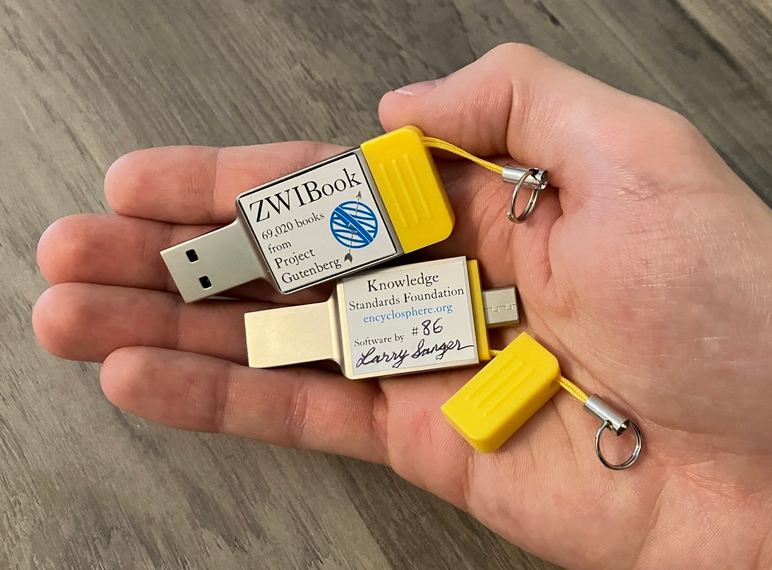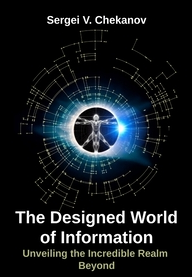Can you hold 70,000 books in one hand?
October 1, 2024 - Reading time: 3 minutes
If you are reading this blog, you are a certifiable smart person and probably know about Project Gutenberg (PG). They have been collecting digital editions of public domain books since Michael S. Hart first typed in the Declaration of Independence and posted it online in 1971. Since then, the project has added free books at an increasing rate, passing the 70,000 mark this year. If they're online, why make these books available on a thumb drive?

With about 70,000 local copies of books, it's pretty darned cool to know that, as long as you have this drive, you will be able to access all those books, even in a nuclear Armageddon. The fact that you can search and read the books, and highlight and take notes on them, on any computer with the drive just makes it better.
Anti-censorship.
We are preserving knowledge-future-proofing culture, you might say-in the face of the very real threat of censorship. Having many copies of these thumb drives, with about 70,000 digitally signed book files, helps us as a society to guarantee that these books will never disappear. You can participate in this preservation effort!
It's a backup of Western civilization.
AI concerns.
Our world is increasingly having to deal with AI-generated text, which makes it possible for unscrupulous people to counterfeit data. Your copy of the Project Gutenberg library is a massive trove of human-written content; the fact that the books are stored offline means your copies are stable and unchanging; and the digitally-signed ZWI format proves they are reliable.

You can get all those books on a flash drive for a 50 dollars donation to the 501(c)(3) Knowledge Standards Foundation. 100 dollars for a signed, numbered copy. The first reviews are in! This unique personal book archive is officially launching today.
Original publication: Can you hold 70,000 books in onehand?
by Dr.L.Sanger (Encyclosphere).
